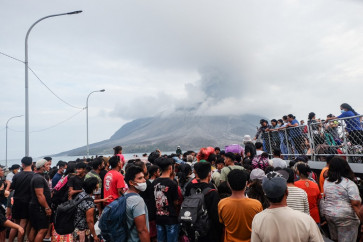40% of all drugs in RI may be fake
Think twice about where you get your medicine these days, as it is estimated some 40 percent of all drugs in Indonesia may be counterfeit
Change Size

Think twice about where you get your medicine these days, as it is estimated some 40 percent of all drugs in Indonesia may be counterfeit.
The International Pharmaceutical Manufacturer Group (IPMG) announced Wednesday the figure was nearly double last year's, when counterfeits comprised 25 percent of all drugs in circulation.
IPMG anti-counterfeit drugs committee head Thierry Powis said the increase was driven by higher demand for cheaper drugs coupled with weak legal measures tackling the fakes.
Some of the country's top pharmaceutical companies have increased their selling prices by an average of 15 percent since early this year as a result of rising industrial fuel prices and raw materials.
Last year, Powis said, the country was estimated to suffer a loss of US$500 million from the purchases of counterfeit drugs.
"Counterfeit drugs do not only harm consumers, but also the country and manufacturers. Comprehensive public education is needed to cut the demand chain," he said.
The WHO estimates some 200,000 people die every year because of counterfeit drugs.
Justisiari Perdana Kusumah from the Indonesian Anti-Counterfeiting Society said most fake drugs in the country were imported. The drugs include both prescribed medicines and over-the-counter drugs such as those for pain and weight loss.
In Indonesia, such fake drugs can be easily found in Jakarta, particularly in drugstores in the Pramuka, Grogol and Rawa Bening markets.
The government issued a ministerial decree last year on public drugstores in a bid to stop the spread of illegal drugs and expired drugs in some trade centers.
The Justice and Human Rights Ministry's director for brands Ahmad Hossan said the ministry was in talks with related departments on the revision of the Intellectual Property Rights Law to also help stop the distribution of illegal drugs.
He said the law would later include stricter sanctions on violators and streamlined procedures for producers to patent their brands and packaging.









